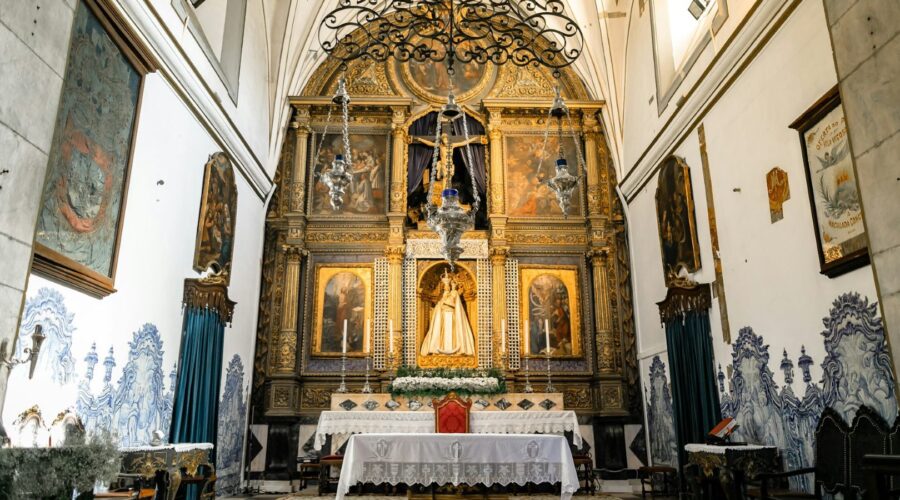Your cart is currently empty!
Discover the Rich Tapestry of Catholicism: A Comprehensive Guide

Introduction
In the realm of the world’s religions, Catholicism stands as an enduring and influential force, shaping the beliefs, practices, and histories of countless individuals and nations. This comprehensive guide delves into the multifaceted tapestry of Catholicism, exploring its beliefs, sacraments, history, and impact on society.
Core Beliefs
At the heart of Catholicism lie a set of fundamental beliefs:
- Monotheism: Belief in one God, the Trinity of Father, Son, and Holy Spirit.
- Incarnation: Belief that Jesus Christ, the Son of God, became human and lived among us.
- Resurrection: Belief that Jesus rose from the dead, conquering death and offering hope of eternal life.
- Salvation: Belief that humans are sinful and need God’s grace to be saved, which is accessible through faith in Jesus Christ.
- Sacraments: Belief in seven sacred rituals that are seen as channels of God’s grace.
The Virgin Mary
Catholicism also holds a special veneration for the Virgin Mary, believing that she was immaculately conceived, remained a perpetual virgin, and was assumed into heaven after her death.
Sacraments
Sacraments are central to Catholic worship and spirituality, believed to be visible signs of God’s grace and means of encountering the divine:
- Baptism: Sacrament of initiation into the Catholic Church, washing away original sin.
- Confirmation: Sacrament that strengthens the spiritual bond with God and confers the Holy Spirit’s gifts.
- Eucharist: Sacrament of bread and wine consecrated into the body and blood of Christ.
- Penance: Sacrament of reconciliation with God, through which sins are forgiven.
- Anointing of the Sick: Sacrament that provides spiritual and physical comfort to the ill.
- Holy Orders: Sacrament that consecrates men as priests, deacons, and bishops.
- Matrimony: Sacrament that blesses the union of a man and woman in holy matrimony.
History of Catholicism
The history of Catholicism spans over two millennia, marked by pivotal events and figures:
Early Christianity
Catholicism traces its roots to the apostles of Jesus Christ, who spread the Christian message throughout the Roman Empire.
Rise of the Papacy
The Bishop of Rome, known as the Pope, gradually emerged as the head of the Catholic Church, with authority over its doctrine and administration.
Great Schism
In 1054, the Eastern Orthodox Church split from the Catholic Church over doctrinal and political differences, creating a divide that persists to this day.
Reformation
The Protestant Reformation of the 16th century led to further divisions within Christianity, with the emergence of Lutheranism, Calvinism, and other Protestant denominations.
Vatican II
The Second Vatican Council (1962-1965) brought about significant reforms in the Catholic Church, modernizing its rituals, promoting ecumenism, and engaging with the wider world.
Role in Society
Catholicism has played a profound role in shaping societies around the globe:
Education
Catholic schools and universities have been at the forefront of education for centuries, fostering intellectual growth and moral development.
Healthcare
Catholic hospitals and clinics provide compassionate care to the sick and vulnerable, guided by the Church’s teachings on human dignity.
Social Justice
Catholic social teaching emphasizes the importance of justice, peace, and human rights, advocating for the marginalized and voiceless.
Art and Culture
Catholicism has inspired countless works of art, music, and literature, enriching the cultural heritage of civilizations.
Influence of Catholicism Today
In the 21st century, Catholicism continues to be a vibrant and influential force:
Global Reach
With over 1.3 billion adherents worldwide, Catholicism is the largest Christian denomination, spanning all continents.
Pope Francis
The current Pope, Francis, has emphasized the Church’s commitment to the poor, social justice, and interfaith dialogue.
Ecumenism
Catholicism is engaged in ongoing efforts to foster unity among Christian denominations and promote interreligious understanding.
Conclusion
Catholicism is a tapestry of beliefs, practices, history, and societal influence that has touched the lives of countless individuals throughout the centuries. Its enduring presence is a testament to the enduring power of faith, ritual, and the search for meaning in life.
This comprehensive guide provides a glimpse into the rich tapestry of Catholicism, inviting readers to explore its depths and discover the myriad ways it shapes our world.